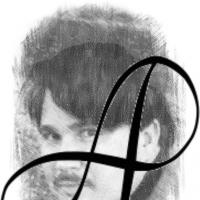Wpisy: 109
Język: English
Paullen (Pokaż profil) 29 marca 2015, 16:00:24
 Be kind with me in any replies, I am a severe newbie.
Be kind with me in any replies, I am a severe newbie. 
Tempodivalse (Pokaż profil) 29 marca 2015, 16:21:10
Paullen:Being and American English user I am having great difficultly learning accusatives I guess they are call relating to the -n ending?. But I see it as a necessary tough learning curve I must master.Thanks for your comments!

There is nothing difficult about the accusative case. All you need to know are two things, and the correct use of -n will become self-explanatory in 99% of cases:
1) What a direct object is (quite simple, this is usually taught early in grade school)
2) Prepositions indicating directionality (e.g., knowing that "The cat ran under the table" can refer to the cat running into the area under the table, or running around while already under the table).
Based on my teaching experiences, I would say other parts of Esperanto take longer to get used to for English speakers:
1) Proper use of the correlatives tio, tiu and the conjunction ke, all three of which are expressed with the word that in English.
2) Verb transitivity. Unlike English, most verbs can't be both transitive and intransitive at the same time.
3) Adjectival and adverbial participles (poorly differentiated in English, only via -ing and -ed)
Ironically, these issues are usually (and wrongly) considered easier than the accusative, so many learners don't spend enough time on them.
Paullen (Pokaż profil) 29 marca 2015, 21:12:25
Tempodivalse:many learners don't spend enough time on them.You brought up several things I had never even heard of yet but I know they will come in time. Time that I know I have need yet to spend. Ironically I have the time and inclination, but I have a brain that takes a LOT of repetition to get things to stick. First things first I will try to get the accusative -n case to stick. I learned English from memory not ever even learning what all the language parts were. I have a real dislike(to be polite) for English and its lack of standards. There is way to much to remember. Esperanto has it own complexities but at least it is uniform about them.
 I look forward to the Duolingo course due out perhaps mid May, perhaps it will help me out. Lernu is a good Esperanto language source for me but I find the site confusing. Well, its time I had better get busy, I would rather learn to get used to accusatives than be accused of not trying...
I look forward to the Duolingo course due out perhaps mid May, perhaps it will help me out. Lernu is a good Esperanto language source for me but I find the site confusing. Well, its time I had better get busy, I would rather learn to get used to accusatives than be accused of not trying... 
robbkvasnak (Pokaż profil) 29 marca 2015, 22:02:09
Elhana2 (Pokaż profil) 30 marca 2015, 05:18:13
robbkvasnak:English still has remnants of the accusative - "me"Not quite, those are the oblique case developed from the dative.
What were you by occupation, BTW?
Alkanadi (Pokaż profil) 30 marca 2015, 06:00:44
Paullen:Being and American English user I am having great difficultly learning accusatives...I struggled with this at first also. I think most English speakers do. But, now it just seems natural for me. And, yes, it is important when talking to people who use different word orders.
sudanglo (Pokaż profil) 30 marca 2015, 09:54:12
All you need to know are two things, and the correct use of -n will become self-explanatory in 99% of casesNot too sure about your statistic there, Tempo, 99% might a bit too high.
Anyway for English speakers, it is not just mastering the concept of the direct object but also remembering to mark it (and any agreeing adjective) and also not to mark subjects when they follow the verb.
I see it as necessary so other speakers from other languages that use different word order can understand my sentences.Actually, marking the direct object is not so much to accommodate speakers of languages that don't use Subject-Verb-Object orders as to allow a shift in emphasis or focus, also to handle subjects that are overly long.
According to statistics compiled by Wim Jansen OVS and SVO orders account for 97% of all usage (in basic sentences) in Esperanto, with SVO coming out at 90%.
So speakers of non-SVO languages have to adjust themselves to SVO when speaking Esperanto anyway.
Tempodivalse (Pokaż profil) 30 marca 2015, 13:57:48
sudanglo:Not to sure about your statistic there, Tempo, 99% might a bit too high.Well, then maybe 97%. I just wanted to say that those two uses of the accusative cover a very large majority of all uses, and one can be at least quite functional knowing just those two, for most contexts.
There are others - accusative replacing a preposition, mostly je (to indicate time), double accusatives with participles (mi vidas la viron portantan kravaton), and non-verbal direct objects (la ricevado literojn) - but those are (mostly) avoidable, unlike the main two uses.
Maybe my background in other, heavily inflected languages has "pampered" me into finding the accusative very easy. Things like adjectival agreement seem very intuitive as long as you know what you want to say. It's just a matter of habit before it becomes automatic - not so much mental effort actually needed.
Word order "default" is SVO, but in my experience some people are more conservative about it than they have to be. Perhaps I'm just sensitive to the nuance, or (inappropriately?) influenced by Slavic languages, but I tend to be more fluid in the word order.
Christa627 (Pokaż profil) 30 marca 2015, 15:16:55






